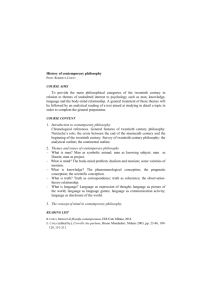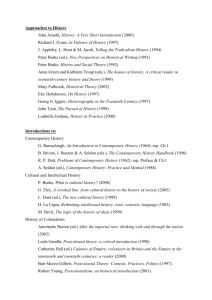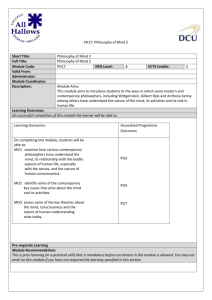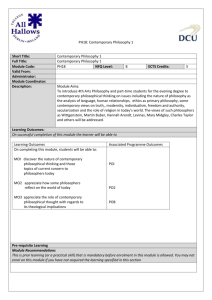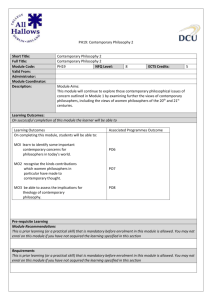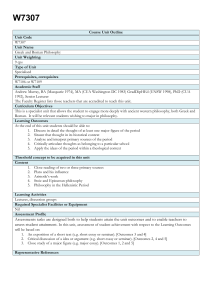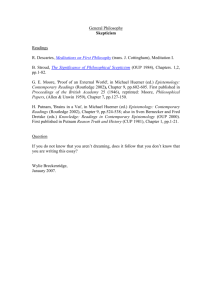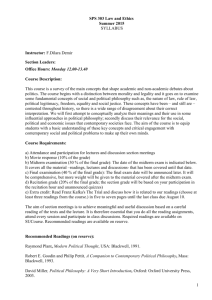BBNNT01000 Political Philosophy 2
advertisement
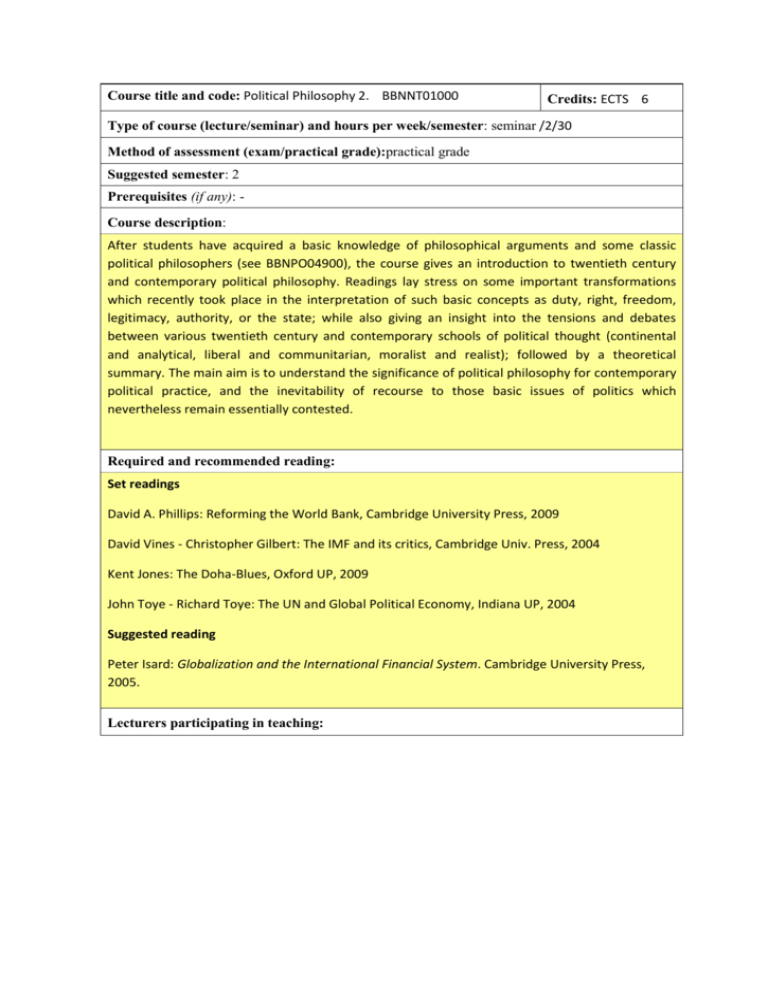
Course title and code: Political Philosophy 2. BBNNT01000 Credits: ECTS 6 Type of course (lecture/seminar) and hours per week/semester: seminar /2/30 Method of assessment (exam/practical grade):practical grade Suggested semester: 2 Prerequisites (if any): Course description: After students have acquired a basic knowledge of philosophical arguments and some classic political philosophers (see BBNPO04900), the course gives an introduction to twentieth century and contemporary political philosophy. Readings lay stress on some important transformations which recently took place in the interpretation of such basic concepts as duty, right, freedom, legitimacy, authority, or the state; while also giving an insight into the tensions and debates between various twentieth century and contemporary schools of political thought (continental and analytical, liberal and communitarian, moralist and realist); followed by a theoretical summary. The main aim is to understand the significance of political philosophy for contemporary political practice, and the inevitability of recourse to those basic issues of politics which nevertheless remain essentially contested. Required and recommended reading: Set readings David A. Phillips: Reforming the World Bank, Cambridge University Press, 2009 David Vines - Christopher Gilbert: The IMF and its critics, Cambridge Univ. Press, 2004 Kent Jones: The Doha-Blues, Oxford UP, 2009 John Toye - Richard Toye: The UN and Global Political Economy, Indiana UP, 2004 Suggested reading Peter Isard: Globalization and the International Financial System. Cambridge University Press, 2005. Lecturers participating in teaching:
